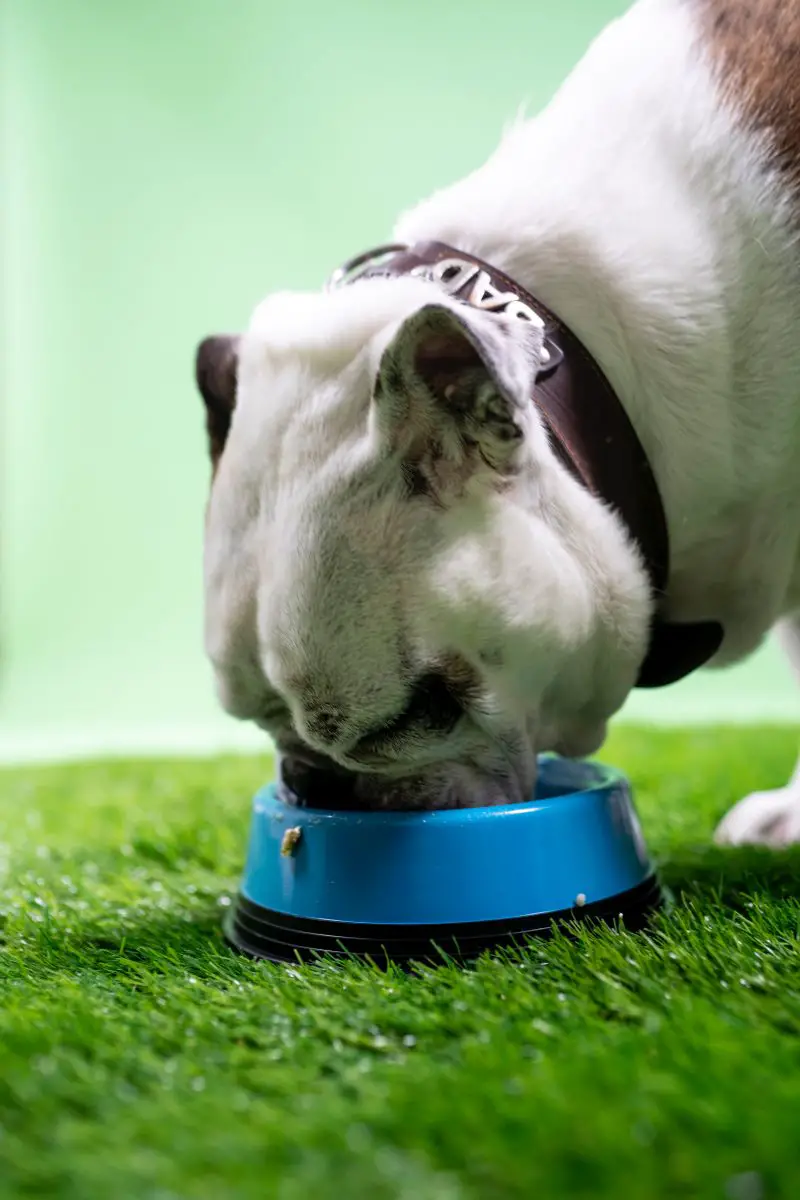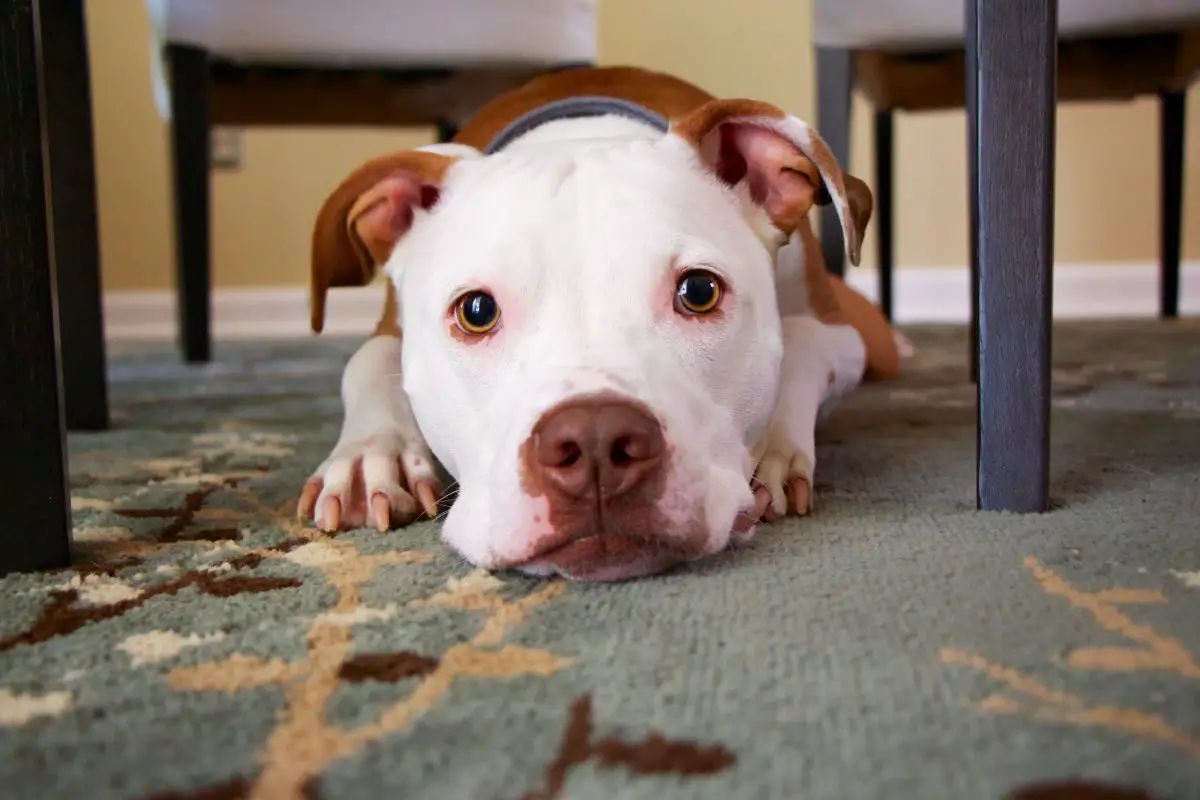It takes an average human around 6 hours to fully digest a meal but, of course, this number can vary depending on the individual person. And the same is true for dogs- a dog can take anywhere from 4 to 10 hours to digest its food, with many factors affecting the exact amount of time taken.

Table of Contents
- How do dogs digest food?
- Factors affecting the speed of digestion in dogs
- Stress can affect digestion
- Medications
- How do I know if my dog is struggling with their digestion?
- FAQs
How do dogs digest food?
A dog’s digestive system is relatively similar to that of a human. Digestion begins when food enters the mouth and continues through several different organs to absorb the necessary nutrients the body needs from the food. The remaining food, which is not useful to the body, and categorized by the digestive system as waster, is then excreted. However, to better our understanding of this process, here is a more cohesive breakdown of the stages involved in digestion.
One – Mouth
In humans, digestion begins in the mouth, where enzymes present in our saliva begin to work to break down the foodstuffs before we even swallow. However, this is not the same in dogs. Dog saliva does contain enzymes, but they are only effective in speeding up the healing of wounds – hence why dogs tend to lick their wounds. Instead of beginning to break down the food, a dog’s saliva acts as a lubricant, to aid the food in sliding comfortably down the oesophagus to reach the stomach. Digestion is also helped by chewing and dogs chewing their food, especially hard, dry food, helps to make the next steps easier for the rest of the digestive system.
Two – Stomach
The stomach is full of acid, which helps to dissolve the food that arrives there. Dogs in particular have highly acidic stomachs in order to help them digest foodstuffs such as raw meat and bones. It is in the stomach that the food is turned into chyme, a semi-fluid pulp of partly digested food. A dog’s stomach does contain digestive enzymes and these also help to ready the food for the next stage of digestion. This part of the process can take up to eight hours for dogs, compared to an average of 30 minutes for humans!
Three – Intestines
The intestines are a connection of tubes that the chyme passes through where it is fully digested and broken down. Food first passes through the small intestine and then through the large intestine. During this process, all the nutrients from the food are absorbed into the body to be used for various bodily functions. Leftover food is determined by the body to be waste is passed to the colon. Here, the remaining waste becomes faecal matter and is stored until it is ready to be expelled from the body.
Factors affecting the speed of digestion in dogs
As in humans, there are factors affecting the speed of digestion. There are also factors affecting speed of digestion in dogs that do not exist for humans. Additionally, there are some things that will depend entirely upon the individuality of your dog.
Size and breed
One of the most important factors affecting the rate of digestion in dogs is their size. It also affects how much they eat to begin with and, therefore, how much food their respective digestive systems have to deal with. Additionally, the breed of dog will affect how large it grows to be. An adult Labrador can grow to be 12 times as big as an adult Chihuahua, meaning that the Labrador will consume 12 times the amount of food that will require digestion.
Age
Age also affects digestion in dogs, just as it does in humans. Similarly, to people, older dogs are more likely to struggle with digestion and for the process of digestion to take longer. Younger dogs will generally digest food faster and more efficiently. Additionally, healthier dogs will digest food faster and younger dogs tend to find maintaining their health easier than older dogs.
Diet
Different foods digest at different speeds. Dry food will take much longer to digest than wet food and food richer in protein will also digest quicker. The quality of the food also makes a difference- highly processed food tends to take longer to digest than fresh, healthy food.
Stress can affect digestion
If your dog is stressed, then they may have trouble digesting their food as effectively as dogs that are not stressed. Stress in dogs can be caused by many things but is usually triggered by a change in their lifestyle or environment. If you suspect that your dog may be stressed then it is best to take them to the vet. Your vet will also be able to help if stress is negatively affecting your dog’s digestion.
Medications
Some medications can also hamper your dog’s ability to digest food effectively. If your dog has been struggling with their digestion since they were put onto a new medication, then it may be worth consulting your vet. Your vet should be able to recommend a different medication that won’t interfere with your dog’s digestion or they might advise tablets or supplements to aid digestion in dogs.
How do I know if my dog is struggling with their digestion?
Some common signs of difficulty digesting in dogs include the following:
- Diarrhoea and/or vomiting
- Loss of appetite
- Constipation/struggle toileting
- Excess gas
- Blood or mucus in stool
If you notice any of the above signs in your dog then it is important to make sure that they are seen by a vet who will be able to advise the best course of treatment for your furry friend.

So, how long does it take for a dog to digest food? Overall, your dog’s digestion will depend upon its breed, size, age and diet. If you maintain a healthy diet for your dog and work towards keeping them happy and healthy then they should have no trouble digesting their food effectively.
But, if your dog appears to be struggling a little with their digestion, your vet will be able to help them get back to their usual self.
FAQs
The duration for which a dog’s stomach remains full after eating can vary depending on several factors, including the dog’s size, age, metabolism, the type of food consumed, and individual digestive patterns. In general, small meals last 2-4 hours, and large meals take about 4-6 hours. Note that individual dogs can have varying digestion rates.
Many dogs take around 5 to 15 minutes to finish their meal. This is a typical range for most dogs and suggests a healthy eating pace.




